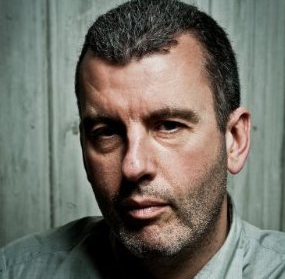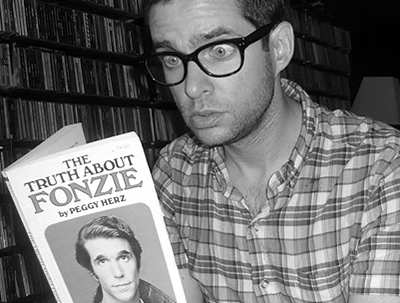From Beyonce to Drake, Dr. Dre, Chance The Rapper, Prince and Kanye West, the past 12 months in the blockbuster music business has been defined, at least in part, by streaming exclusive deals.
In addition, a host of artists – for a host of different reasons – have windowed their new albums off Spotify for varying periods of time.
This controversial tactic has been demonstrated by the likes of Coldplay, The 1975, Catfish & The Bottlemen, Gwen Stefani, Rihanna, Gregory Porter and, of course, Radiohead.
The Independent Echo wanted to get a flavour of what our community thought about these goings-on – particularly exclusive deals that often involve cash or promotional promises going the way of a label.
So… we asked some of you. And here’s what you said.
 Tim Dellow, co-founder, Transgressive Records
Tim Dellow, co-founder, Transgressive Records
“As ever with any new technology or distribution system, there needs to be a degree of balance in the market between personal opportunity that can work for individual acts, and creating a solid and stable solution for the consumer to give them faith in the idea of paying for music and supporting us all.
“I think copyright holders should continue to work closely with these new tech companies to make sure that we collectively market the benefits of legal streaming solutions to consumers, without undermining their confidence in paying for music/streaming.”
 John Leahy, Director, Ignition Records
John Leahy, Director, Ignition Records
“As both an artist manager and as a label head I see the benefits of partnering exclusively with one streaming platforms; there have been some good deals recently which have undoubtedly helped artists financially or in kind.
“As a consumer who pays for a couple of streaming accounts myself do I think it’s beneficial? The jury’s out for me.
“Amazon and Netflix are paying to create their own content so as a consumer I understand that I have to pay for one or other to see that original content.
“The streaming companies have so far done great work introducing a new service to music fans worldwide but the overall proposition becomes a much harder sell if the content they can provide becomes incomplete. Much less attractive isn’t it?
 Jonathan Galkin, co-founder, DFA Records
Jonathan Galkin, co-founder, DFA Records
“All of these ‘streaming exclusives’ are for the 1%. This is not my fight. It sort of feels awful all around, regardless of the scale of the artist. It’s like having to join a gym in order to buy a pair of sneakers.
“This is the least democratic way to hear discuss and enjoy new music. It shouldn’t be a scavenger hunt to find an album, and albums shouldn’t be used as bait to build tech companies.
“But, you know, good for Kanye and Drake and Beyonce. But it leaves little room to focus on the discovery of new music, which is what DFA is all about.”
 Simon Raymonde, co-founder, Bella Union
Simon Raymonde, co-founder, Bella Union
I am concerned about the saturation. If you are an artist at the level of Beyonce and Drake you’re no doubt in the enviable position of being able to dictate the terms of what kind of editorial positioning you get when talking to one of the streaming services.
“But go down several levels – not even just to the young, exciting up-and-coming artists but even those on album 2 or 3 that are pushing for that breakthrough. Who is looking out for them? How are customers going to find new artists or new releases?
“These services have SO much content that it SEEMS they are more concerned about supporting the few that bring in the numbers than the many that don’t. We are now at that point where one of the the few ways to get a boost of attention is by getting your song on one of these streaming Playlists that has a good rep, a ton of subscribers and will get shared around.
“The ‘experience’ of listening to music on streaming services is for my money pretty poor value and the return to the musicians truly awful. With the amount of paid subscribers to Spotify, Apple Music and Tidal totalling around 47 million and in the USA active users of Pandora, iHeartRadio totalling 150 million, there are in excess of 200 million folks on the planet paying to hear music streamed on their devices.
“Yet just like in the early days of recording contracts where artists were getting ripped off left, right and centre by the executives, here in mid-2016, things really haven’t moved on much at all.”
 Lohan Presencer, CEO, Ministry Of Sound
Lohan Presencer, CEO, Ministry Of Sound
“My view is that [streaming exclusives] are enormously confusing for the customer. Are they really going to leave their music service just to access one or two artists that are either windowed or permanently exclusive to another service?
“I imagine it’s a small proportion who will but in most cases I suspect it can alienate an artist from their fans and potentially generate equal negative sentiment towards a music service as it does positive customer acquisition benefit.”
 Simon Wheeler, Beggars Group
Simon Wheeler, Beggars Group
We need to be clear about what we mean by ‘exclusives’, but if we mean the core release – i.e. The artist album – then I don’t believe that those offers are good for the fans, good for the artist, or good for the market.
“If the exclusives are additional material such as mixes, sessions or other extras then there’s always been a place for those items in a campaign.”
 Brian Message, ATC/Courtyard Management
Brian Message, ATC/Courtyard Management
“I’m not a fan of the windowing of the primary output of artists: i.e the songs that get recorded.
“Window other ancillary product by all means, but not the key moments that provide the magic that sets music apart from the plethora of other spend options the world has at their fingertips.”
 The Independent Echo also sat down with [PIAS]’s own Adrian Pope – MD of our Global & Artist Label Services – to get his in-depth view on the topic. In short: exclusives = bad, while windowing = good. But it’s a little more complicated than that. Read the below from Adrian to discover why…
The Independent Echo also sat down with [PIAS]’s own Adrian Pope – MD of our Global & Artist Label Services – to get his in-depth view on the topic. In short: exclusives = bad, while windowing = good. But it’s a little more complicated than that. Read the below from Adrian to discover why…
My general view would be that currently exclusives are short termist and neither good for the business nor the fan. This, however, comes with one big caveat…
So why no good?
- Providing an exclusive window on a core product clearly advantages one partner over another. It causes strain in relationships over the duration of a campaign.
- Exclusives also run the risk of alienating certain parts of the fanbase of an artist and tend result in missing significant swathes of the target audience. This is further exaggerated in instances where multiple examples of ‘exclusivity’ exist across the same campaign – i.e. where something unique is given to one retailer and something separate but also unique is given to another etc etc. It’s a poor experience for the fans, it invariably costs more to pull together (money and time, both in scarce supply), often detracts from the main product/release and is more often than not of limited quality or truly valued by the fan.
- Providing exclusives to one retail partner versus another is always something that [PIAS] has resisted, and certainly in respect to the core product.
- There are exceptions in that where a service has a feature or function that’s unique in comparison to other services then we consider making content/products available utilising that specific feature. I see that more as service differentiation rather than straight up exclusivity.
- Whilst ‘marquee names’ might create massive PR and awareness for all concerned, I’m not convinced providing exclusives on less high profile or developing acts actually moves the needle for anyone.
- We value and encourage diversity in the market – having overly dominant players is never healthy in either the short or longer term and exclusives plays into that possibility.
- I believe that in general exclusives favour the few not the many and that. It panders to those rights holders with deeper pockets who want to get short term success to hit quarterly targets and bonuses rather than build long campaigns that ultimately widen to include a much broader audience and consequently build and develop artists careers.
So all that negativity aside, what’s positive?
- I’d rather see a level playing field across all retail platforms so that consumers choose their chosen path of consumption on the merit of the service, not the exclusivity of its content offer.
- Focus on the consumer experience being great – we live in an immediacy and discovery culture. Surfacing repertoire in a tailored, individual basis is far more compelling and trustworthy than being hit over the head with one off mass appeal options.
And the big caveat? Windowing
I’m in favour of rewarding people that pay regular subscription fees with a window on releases or repertoire. So free users have access to catalogue and new releases after a ‘window’ of time. This however comes with both a caveat and a challenge:
The caveat:
‘One rule for all markets’ doesn’t work. I’d have no argument with new releases appearing on ‘paid only’ aspects of a service for a window of time in mature markets, e.g. Sweden but ‘free’ still plays a role in less mature or economically challenged markets e.g. Spain.
There’s a strong argument to say that whilst ‘free’ plays a role in funnelling consumers to ‘pay’, there’s also a significant undervaluing of repertoire by some platforms when being accessed on free services in markets where ad sales/revenues are really low e.g. YouTube outside of a few big markets.
As such, I would think really carefully about the role such platforms play in territories where there is genuinely limited upside for rights holders and other platforms provide commercial surety.
And the challenge?
Whilst the likes of YouTube and Spotify demand that repertoire exists on both aspects of their service (paid and free) in all markets, true windowing isn’t possible. It would simply advantage one partner over another and that’s problematic.
In fact, this point is at the route of the evolution of exclusives. If windowing was possible, by market, then a clear message can be delivered to consumers without it damaging the introductory role that ‘free’ offers.
Exclusives would be less potent and we can go back to focussing on producing great music and delivering it through great platforms.
I’m not naïve, honest!
- Exclusives are a reality but that doesn’t mean we should just accept them as being part of our business.
- We should maintain a position of repertoire being made available on the basis of merit and inclusion not on the basis of favouritism and exclusion.
- Let’s work collaboratively to establish what works and what doesn’t. Its more subtle and nuanced than big whopping exclusives with loads of short term PR.
- Let’s find the windowing sweet spot that works best for repertoire owners, platforms and fans.